Which committees are Wisconsin's US House members assigned to in the 118th Congress?
The state's eight members in the U.S. House of Representatives — two Democrats and six Republicans — are assigned to over a dozen different committees in the session of Congress that started Jan. 3, 2023.
The Badger Project
February 27, 2023

(Credit: PBS Wisconsin)

The U.S. House of Representatives is wrapping committee and subcommittee assignments for the 118th Congress, which began in January and continues until January 2025.
“Overall, this looks like a good set of committee assignments for the Wisconsin delegation,” said David Canon, a UW-Madison Department of Political Science professor who focuses his research on elections and Congress. It includes some plum assignments for both new and veteran members of Congress in Wisconsin.
Legislative bodies like the U.S. House are broken into issue-specific committees, which write and negotiate bills and vote to approve or deny them before they go to the full membership for further changes and a possible up-or-down vote. The party in the majority, currently the Republicans, typically seats a majority of its members onto committees, while the party in the minority, currently the Democrats, get a minority of seats on each committee.
Republicans have a tight, 10-seat majority in the 435-member House. The U.S. Senate is currently controlled narrowly by Democrats. Before the president can sign a bill into law, both legislative bodies must pass it.
The committee selection process hasn’t been without drama, from big political moves, like Republicans booting prominent Democrats from several committees, right down to the petty, such as how committees are named.
A reference to “Labor” under Democratic control becomes “the Workforce” under Republican control, for example.
When a subcommittee name changed under the new Republican leadership this year from “Worker and Family Support” to “Work and Welfare,” committee member Rep. Gwen Moore, the Milwaukee Democrat who has spoken publicly about being on public support as a teen mother, and other Democrats objected to the choice of the word “welfare,” which they said has become pejorative and has racist undertones.
Changing committee names to match Republican or Democrat ideologies is common when control of the House changes, Canon said.
“That always happens,” Canon said. For constituents, it creates only confusion.
“It is kind of annoying. I have to remember ‘What are we calling it now?'” Canon said. After all, even when committee names change, “the jurisdiction doesn’t change.”
Below is a breakdown on which committees Wisconsin’s eight representatives are serving.
Bryan Steil, reelected in November to his second term, represents the southeastern corner of Wisconsin, including Janesville, Beloit, Racine and Kenosha.
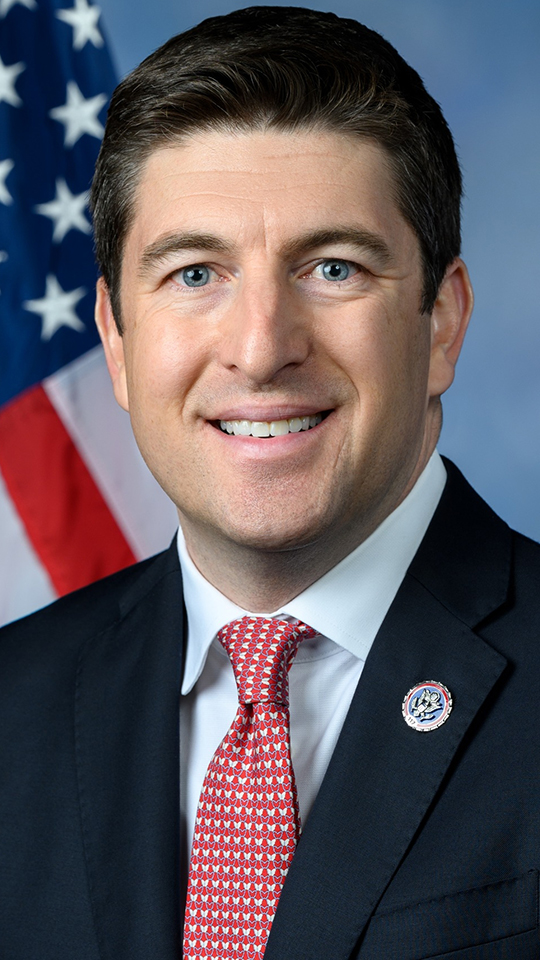
U.S. Rep. Bryan Steil, WI-01, Republican (Credit: United States Congress)
His committee assignments:
- Financial Services
- House Administration, Chair
Steil introduced a “Putting Investors First Act” in January on the Financial Services Committee.
He said the bill would constrain the influence of investment proxy advisors, which he accuses of “using your retirement funds to advance their radical agenda.” Proxy firms have come under attack for having limited transparency and pushing companies on issues such as environmental protections at the expense of shareholder returns.
“My bill puts a stop to the woke attack on American capitalism,” he said in a press release.
As the newly-appointed chair of House Administration, which oversees House operations and security, Steil “is focused on ensuring our government is open, accessible and accountable to the American people,” said Grace White, his communications director.
“Two steps he’s already taken are working to fully reopen the House and end proxy voting,” she said in a statement to The Badger Project. Proxy voting, a response to the pandemic, allowed representatives to vote on legislation without being in the Capitol.
House Administration also has jurisdiction over federal election law. On that, White said, Steil “is focused on making it easy to vote and hard to cheat.”
Voter fraud is extremely rare in the United States, and checks to prevent it in Wisconsin and across the country are already robust.
Mark Pocan, reelected in November to his sixth term, represents a district that includes the city of Madison, Dane County and the surrounding counties.
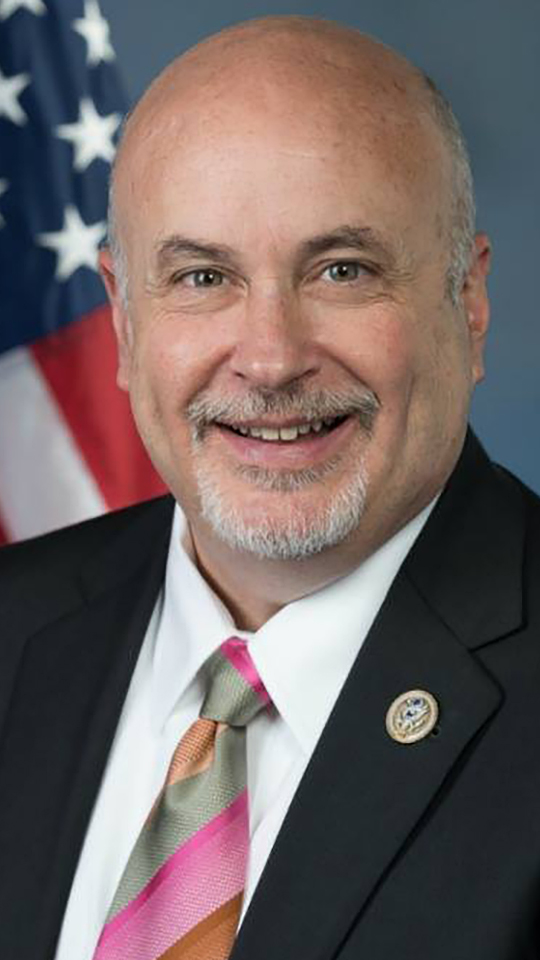
U.S. Rep. Mark Pocan, WI-02, Democratic (Credit: United States Congress)
His committee assignment:
- House Appropriations, with subcommittee assignments to Financial Services and General Government; Labor, Health and Human Services, Education
House Appropriations has a reputation as a powerful, A-list committee because members control how government money is spent. The committee’s schedule is intense but short, meeting for just three months starting in March, after the president submits his budget.
Pocan, a leader in the left-wing Congressional Progressive Caucus, considered applying for a waiver that would allow him to serve on another committee this term, but in the end, “we just stuck with Appropriations,” Matt Handverger, his communications director, said by phone. A waiver would have risked Pocan losing his seat on Appropriations, a seat he’s held since 2017.
Appropriations also has the benefit of being “far less partisan than other committees,” Handverger said.
“Mark likes to say that there are three types of (U.S. House) members: Democrats, Republicans and appropriators. Appropriators have to work together,” Handverger said. “They’re going into the nitty gritty. There’s an opportunity to fight for your state and there’s a lot of ‘I’ll scratch your back if you’ll scratch my back’ on this committee.”
3rd District: Derrick Van Orden (R)
Wisconsin’s newest member of Congress, Derrick Van Orden represents much of western Wisconsin, including the cities of La Crosse, Eau Claire and Stevens Point. He is new to office after longtime Democratic Rep. Ron Kind did not seek reelection in the swing district he has held since the 1990s. Van Orden beat Democrat state Sen. Brad Pfaff in November 2022.
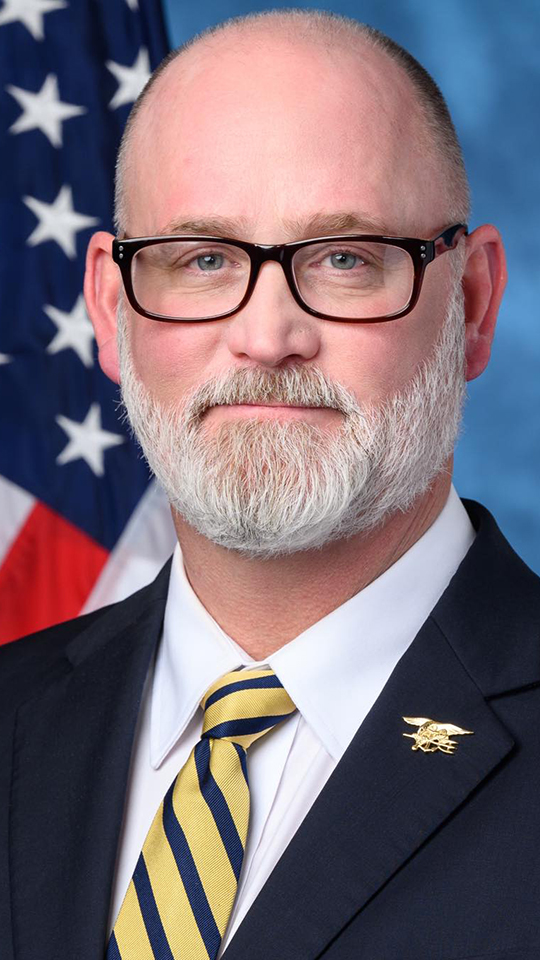
U.S. Rep. Derrick Van Orden, WI-03, Republican (Credit: United States Congress)
His committee assignments:
- Agriculture
- Transportation & Infrastructure
- Veterans Affairs
Van Orden, a retired Navy SEAL who says he grew up in rural poverty, has promised to be “the cheese king of Congress,” representing farmer and dairy industry interests.
In a press release, he called his committee appointments “three huge wins” for his district.
“Rural communities like ours have been underrepresented for too long, and our service men and women deserve an advocate who has walked in their shoes. I’m looking forward to better serving our farmers, veterans, and those who rely on rural infrastructure along the Mississippi and beyond,” he said.
Canon said Van Orden’s committees “are considered three of the classic ‘constituency committees,'” meaning they appeal directly to the everyday concerns of constituents.
“It’s not surprising to see him gravitating to these constituency committees,” Canon said, because they give Van Orden a way to “solidify his electoral base” as a newly elected representative.
All three committees deal with policies relevant to Wisconsin’s 3rd District, Canon said. Transportation and infrastructure, in particular, “often can bring lots of tax dollars back to the district” and are important for creating jobs.
One of Van Orden’s first actions in Congress has been to cosponsor legislation that would reverse a Biden administration rule, finalized in December, to give Clean Water Act federal protection to large waterways, like interstate rivers and the streams and wetlands adjacent to them.
Van Orden contends the rule is flawed, burdensome and “places unnecessary restrictions on farmers’ ability to make decisions about their own property,” his office said in a press release.
Gwen Moore, reelected in November to her tenth term, represents the northern half of Milwaukee County, including the city of Milwaukee.
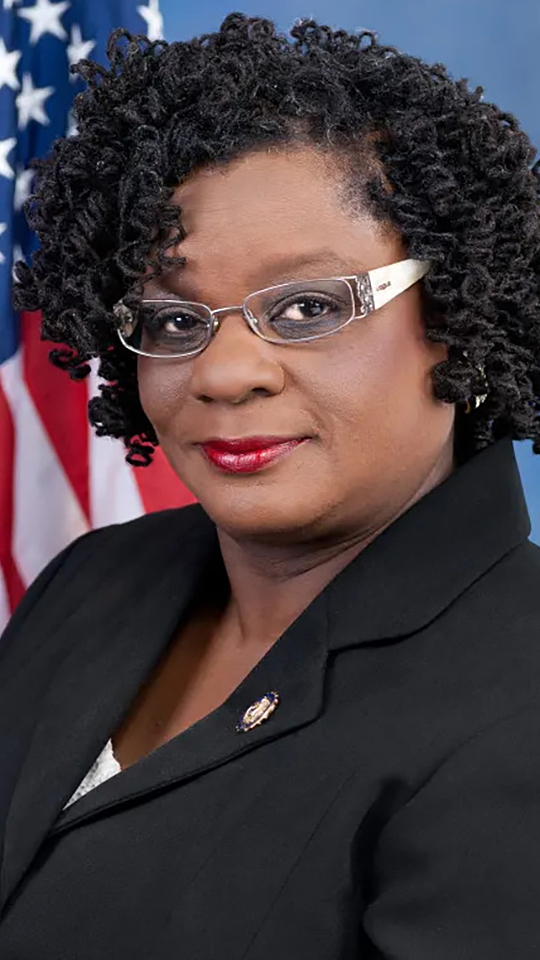
U.S. Rep. Gwen Moore, WI-04, Democratic (Credit: United States Congress)
Her committee assignment:
- WWays and Means, with subcommittee assignments to Oversight; Tax; and Work and Welfare (called Worker and Family Support under Democratic leadership and still referred to as such by Democrats)
- Joint Economic Committe
Like Appropriations, Ways and Means is a prestige committee with a broad jurisdiction that includes tax-writing, banking, tariffs, trade agreements and the revenue-related aspects of Social Security, Medicare and social services programs.
Moore previously served on the powerful committee alongside Kind.
“I am now the only Wisconsin member of Congress serving on the Ways and Means Committee,” Moore said in a statement to The Badger Project. “That means, I have a unique responsibility to advance policies within the Committee’s jurisdiction that uplift the needs of my constituents and Wisconsinites more broadly because the people and economy of my district (in Milwaukee) are so strongly interconnected with the state.”
She said she is focused on “programs that directly help people and families, including Social Security, the foster care system and tax credits like the Earned Income Tax Credit and Child Tax Credit that have proven effective at lifting people out of poverty.”
“It is critical we continue to work to increase access to high quality and affordable health care” in particular, she said, “given the drastic racial disparities in our health systems including horrific maternal mortality disparities.”
Her other priorities include tribal tax fairness, such as eliminating the dual taxation of income and business on tribal lands, and advocating for policies to help improve life for tribal communities.
“In short,” she said, she plans in the 118th Congress to “keep pursuing an agenda to create a more equitable and prosperous nation that includes our most vulnerable individuals.”
On Jan. 31, she re-introduced her “Social Security Enhancement and Protection Act,” first brought forward in 2021.
Among other benefit enhancements, the bill would give Social Security credit to parents caring for young children in the home — a recognition, Moore said, that “providing care for a child is work” and should count in determining future benefits.
5th District: Scott Fitzgerald (R)
Scott Fitzgerald, reelected in November to his second term, represents Waukesha, Jefferson and Washington counties, the southern half of Dodge County, the northeastern edge of Walworth County and some western suburbs in Milwaukee County.
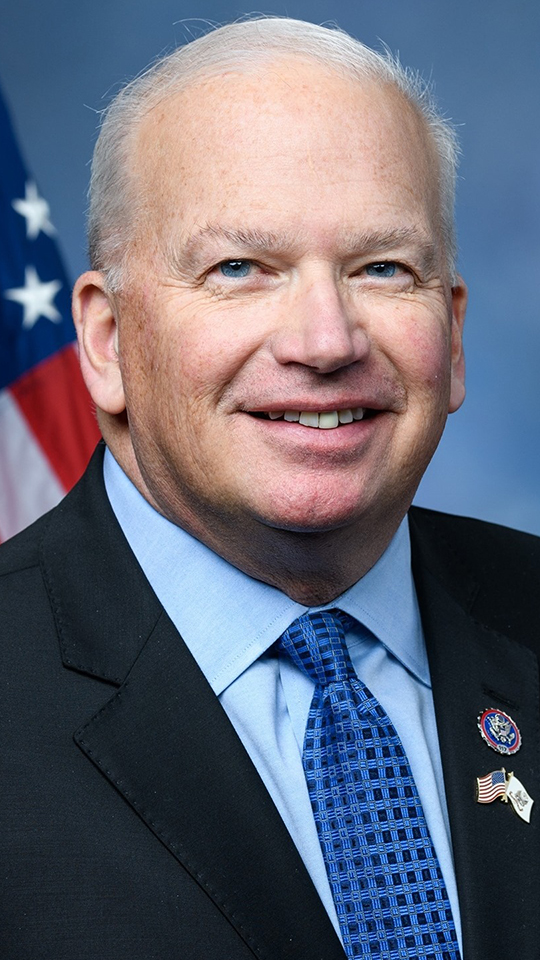
U.S. Rep. Scott Fitzgerald, WI-05, Republican (Credit: United States Congress)
His committee assignments:
- Financial Services, with subcommittee assignments to Financial Institutions and Monetary Policy; Housing and Insurance.
- Judiciary, with subcommittee assignments to Administrative State, Regulatory Reform and Antitrust; Courts, Intellectual Property and the Internet
This will be Fitzgerald’s second term on the Judiciary Committee and his first on Financial Services, which oversees agencies and policies related to the economy, banking, housing, insurance, international finance and securities and exchanges.
In his seat on the Financial Services’ Housing and Insurance subcommittee, he sees an opportunity in “developing policies to increase housing supply and maintaining robust insurance protections for consumers,” Fitzgerald said in a Jan. 26 press release.
“I’m grateful to have been selected to subcommittees on the House Financial Services Committee that meaningfully affect the Fifth District. Inflation has caused great pain by significantly increasing the cost-of-living in our communities,” he continued
On the Judiciary Committee, his goals include “addressing the border crisis, Big Tech censorship and soaring crime.”
Violent crime has risen across the country in recent years from record or near-record lows, but in many places remains well below the record highs of previous decades. Meanwhile, other types of crime have decreased.
Fitzgerald has introduced multiple pieces of legislation, including the Vaccine Discharge Parity Act, which allows a member of the Armed Forces discharged solely for refusing the COVID-19 vaccine to remain eligible for G.I. Bill education benefits; and the Curriculum Review of Teachings Transparency Act, which would ensure school districts post each grade’s curriculum on a publicly accessible website as a condition of federal funding.
6th District: Glenn Grothman (R)
Glenn Grothman, reelected in November to his fifth term, represents Columbia, Marquette, Waushara, Green Lake, Fond du Lac, Manitowoc, Sheboygan and Ozaukee counties, most of Winnebago County, a southern portion of Calumet County and the northern half of Dodge County.
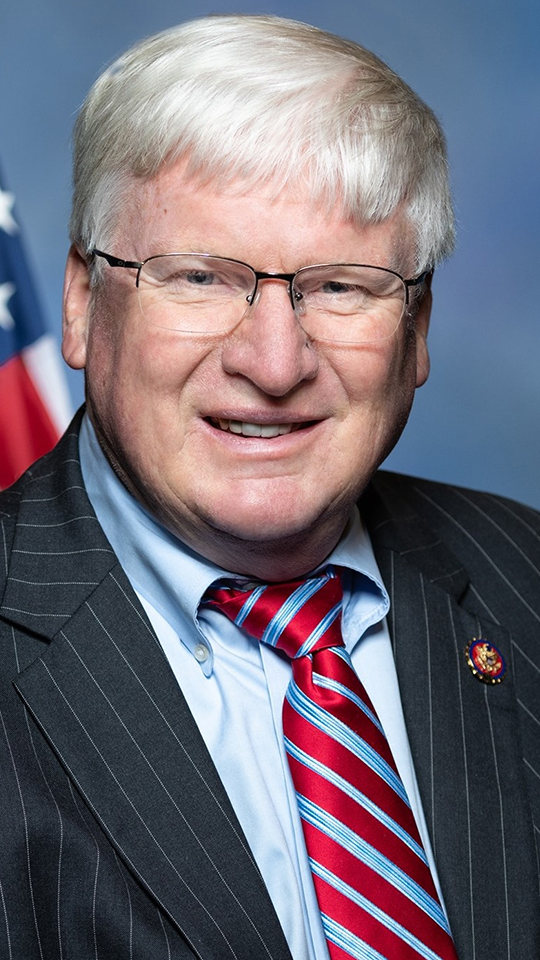
U.S. Rep. Glenn Grothman, WI-06, Republican (Credit: United States Congress)
His committee assignments:
- Budget
- Education and the Workforce
- Oversight and Accountability, with a subcommittee assignment as chair of National Security, the Border and Foreign Affairs, Chair
Grothman is not new to his committee assignments, however his chair position on the Oversight and Accountability subcommittee is.
As subcommittee chair, he wants to “make sure our veterans are treated fairly and with respect, our borders are not taken advantage of and the United States’ relationship with other countries are upheld justly,” according to a press release.
On Jan. 31, he introduced a bill with potential for local impact. The “Workplace Choice and Flexibility for Individuals with Disabilities Act” aims to increase employment opportunities for people with disabilities through Community Rehabilitation Providers (CRPs). In his district, these businesses include RCS Empowers in Sheboygan and Lakeside Packaging in Neenah, he said.
“Expanding career opportunities for individuals with disabilities is an issue the Congressman has been passionate about throughout his time in Washington,” said Kyle Amato, Grothman’s press secretary. “This is a similar bill that he has introduced previously, all of which he has worked on independently of the House Committee on Education and the Workforce.”
Tom Tiffany, reelected in November to his second term, represents much of northwestern Wisconsin.
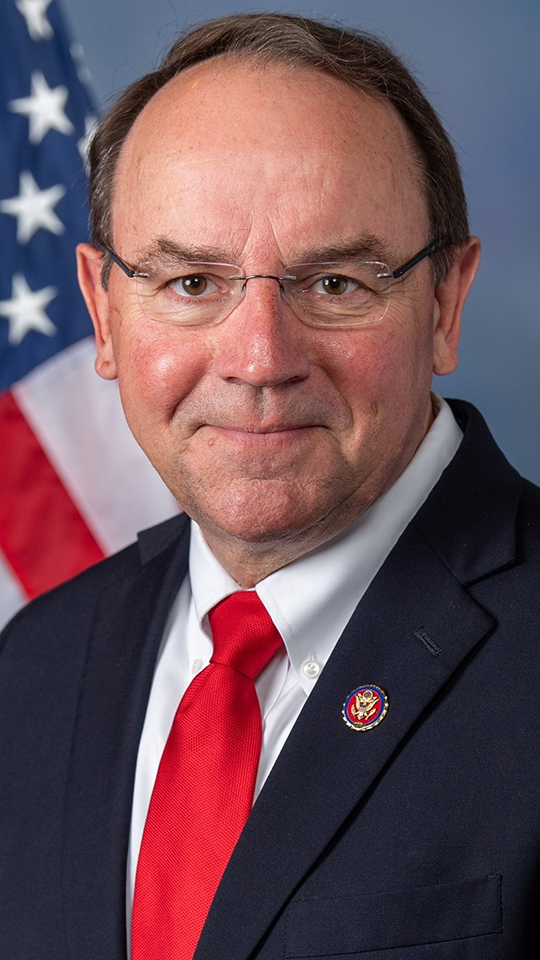
U.S. Rep. Tom Tiffany, WI-07, Republican (Credit: United States Congress)
His committee assignments:
- Judiciary, with subcommittee assignments to Crime and Federal Government Surveillance; Immigration Integrity, Security and Enforcement
- Natural Resources, with subcommittee assignments to Energy and Mineral Resources; Federal Lands (formerly known as “National Parks, Forests and Public Lands” under Democrats), Chair
As chair of the Federal Lands Subcommittee, Tiffany said in a statement to The Badger Project that he wants to steer focus toward “better managing the public lands we already own and less on finding new ways to expand the size of the federal estate.”
“That means using scientifically-proven methods to better manage our national forests and rangelands in ways that improve forest health, expand recreational opportunities and contribute to economic development,” he said.
Canon notes that Tiffany’s committee assignments differ from the “constituency committees” that new and more vulnerable representatives sit on.
“In contrast to Van Orden, Tiffany’s (committees) seem to be on the other end: just things he’s interested in,” Canon said, adding that Wisconsin does not have a large amount of federal land and “immigration is not a burning interest in the 7th District, compared to all of the Southwest.”
Tiffany does see a local connection, however.
He argues the Biden administration’s “open borders policies impact every American, whether it is the record spike in fentanyl poisonings, the increased strain illegal aliens place on state and local social services, or the troubling increase in crime we’ve seen over the last two years.”
“In essence, the White House has turned every state in this country into a border state, and the American people are tired of it,” he said in his statement, which did not mention issues specific to the 7th District.
Tiffany’s other priorities include addressing the “spike in violence and lawlessness in too many American communities,” ending “misguided policies like low- and no-cash bail,” and “combating the censorship of free speech on social media by Big Tech and federal agencies.”
“I believe all Americans – left, right and center – have a right to free speech,” he said.
The First Amendment does not guarantee the right to free speech on privately-held social media platforms. It prevents the government from restricting speech.
8th District: Mike Gallagher (R)
Mike Gallagher, reelected in November to his fourth term, represents much of northeast Wisconsin including Green Bay.
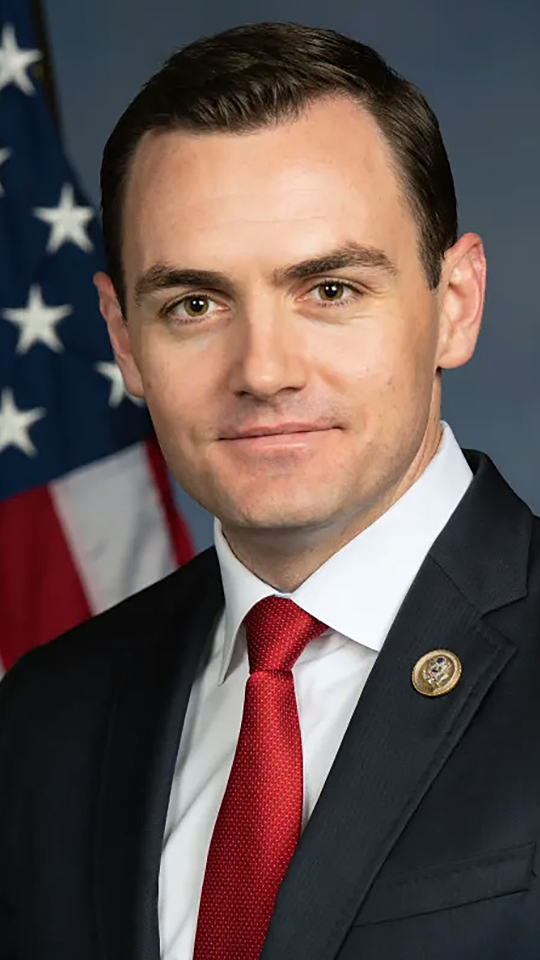
U.S. Rep. Mike Gallagher, WI-08, Republican (Credit: United States Congress)
His committee assignment:
- Select Committee on the Strategic Competition Between the United States and the Chinese Communist Party, Chair
House Speaker Kevin McCarthy created the select committee on China, calling the Chinese government “the greatest geopolitical threat of our lifetime.”
Select committees are usually temporary and are created with a timeline to complete a specific task.
Gallagher’s experience as a Marine counterintelligence officer makes him “exceptionally qualified” to lead the committee, McCarthy said. Gallagher also has two master’s degrees, in Security Studies and Strategic Intelligence, as well as a Ph.D. in International Relations from Georgetown University.
In 2022, Gallagher voted against the CHIPS Act, which is aimed at crippling China’s microchip industry and bolstering the industry in the U.S. Gallagher joined virtually all Republicans in voting against the CHIPS Act, despite his general support of its goal.
He argued at the time in a press release that Congress “should have taken a much more responsible approach to this issue and advanced legislation that is laser-focused on the challenge we face from the Chinese Communist Party.” He referred to this challenge as an “existential competition.”
Gallagher’s select committee on China is granted access to classified information but does not have the authority to send legislation to the floor.
“Select committees rarely have much of an impact,” Canon said. “It will be a platform for Rep. Gallagher to talk about foreign policy issues.”
The chairmanship puts Gallagher “in the public limelight,” Canon noted.
Gallagher has taken up a crusade in recent months to ban the popular Chinese-owned social media app TikTok, calling it a “digital fentanyl” that opens Americans to the risks of propaganda and data harvesting from the Chinese government. Wisconsin Gov. Tony Evers joined over two dozen states in banning the app on state-owned devices in January after public pressure from Gallagher and other lawmakers.
Editor’s note: This article has been updated to indicate that Rep. Gwen Moore serves on the Joint Economic Committee.
The Badger Project is a nonpartisan, citizen-supported journalism nonprofit in Wisconsin.
 Passport
Passport











Follow Us